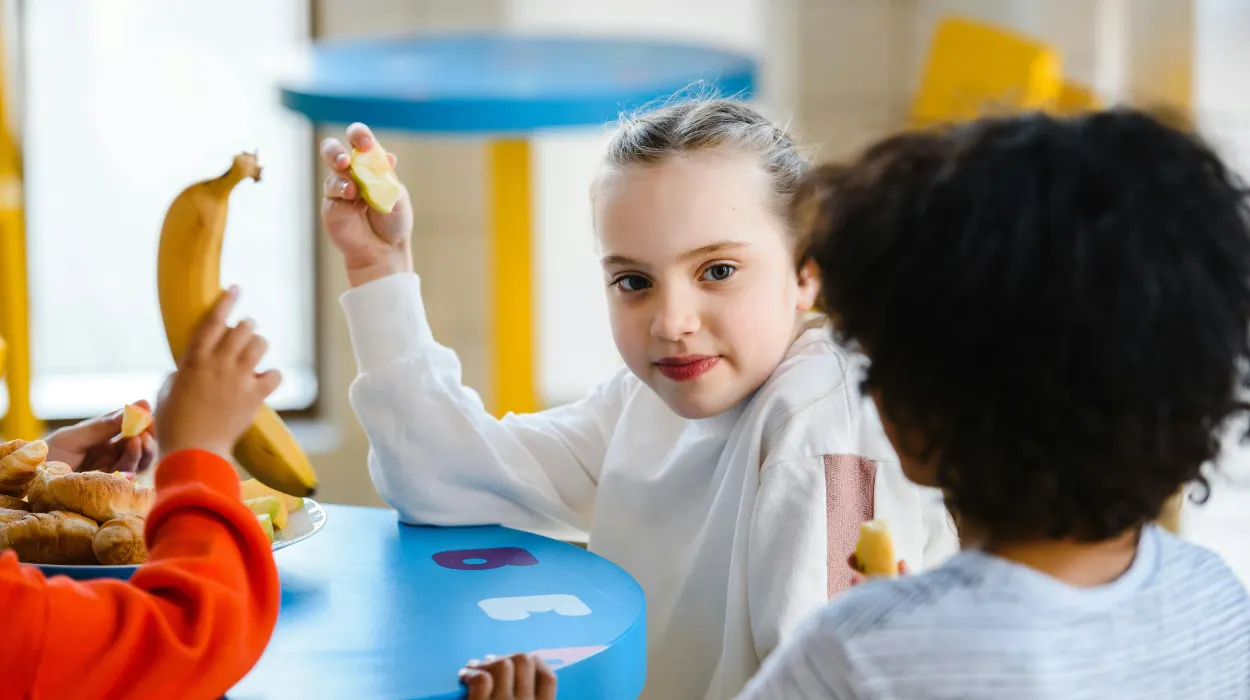UK (Parliament Politics Magazine) – The British government plans to expand school breakfast clubs to tackle child poverty, but critics call it a tactic to keep the two-child benefits cap.
The UK government is promoting its plan to introduce free breakfast clubs in all primary schools in England as part of its plan to address child poverty. However, ministers appear unwilling to fund the £3bn per year needed to remove the two-child benefits cap.
What did Bridget Phillipson say about expanding breakfast clubs?
Education Secretary Bridget Phillipson has confirmed that 750 schools will be the first to implement free breakfast clubs. The initiative aims to benefit 180,000 children, 67,000 from England’s most deprived areas.
Ms Phillipson said,
“Free breakfast clubs sit right at the heart of our Plan for Change, breaking the link between background and success for families all over the country,”
adding,
“Breakfast clubs can have a transformative impact on the lives of children, feeding hungry tummies and fuelling hungry minds, so every child begins the day ready to learn.”
She added,
“Alongside our plans to roll out school-based nurseries and get thousands more children school-ready, this government is delivering the reforms needed to give every child, wherever they grow up, the best start in life.”
The Department for Education, revealing the first 750 schools to join the pilot scheme, stated that breakfast clubs had “an important role to play in the government’s commitment to removing the stain of child poverty.”
What did Jackie Fitton say about the breakfast clubs?
Jackie Fitton, Headteacher at Kearsley West Primary School, stated,
“We are delighted to be one of the early adopter schools. The funding provided will be a real lifesaver, ensuring we can provide a healthy breakfast and supportive start to the day for our pupils.”
She added,
“Breakfast clubs have already made a massive difference to pupils’ wellbeing, providing them with time to settle in, socialise with friends and get ready to learn.”
How did Sir David Holmes respond to expanded breakfast clubs in schools?
Sir David Holmes CBE, CEO of Family Action said,
“Family Action welcomes the government’s announcement of the 750 schools who have been selected to take part in the Early Adopters Scheme. These schools will have a vital test and learn role which will undoubtedly inform the national rollout of the government’s exciting universal breakfast policy.”
He added,
“We know that an effective breakfast provision delivered in a supportive and enriching environment can make a world of difference to a child. We look forward to sharing our long experience of delivering breakfast provision ourselves with early adopter schools.”
What are Labour MPs saying about the two-child benefit cap?
Labour MPs expressed support for breakfast clubs but argued that the government’s focus on them as a solution to combat child poverty seems like an attempt to prepare the public for the retention of the two-child benefit cap.
They pointed out widespread calls from experts and charities that ministers will not lift the two-child benefit cap this summer, insisting it remains the most impactful measure to cut poverty.
A group of Labour MPs has called on the government to ease the two-child benefit cap by allowing support for a third child, arguing it would have minimal financial impact. But officials indicate that the proposal has already been dismissed by the government’s child poverty taskforce, led by Education Secretary Bridget Phillipson and Work and Pensions Secretary Liz Kendall. Meanwhile, the task force’s recommendations are expected before the upcoming spending review.
A Labour insider stated,
“There is a need to prepare the ground a bit and make clear that in the current financial position we are in, we cannot realistically do it. What we can do is talk about what else we are doing to limit child poverty.”
What did headteachers say about the breakfast club pilot scheme?
A recent report revealed that primary school headteachers in England are rejecting participation in the breakfast club pilot scheme, raising concerns about funding. They warn that the government’s 60p-per-pupil support is insufficient and could leave schools struggling financially.
While welcoming the breakfast club pilot scheme, Paul Whiteman, head of the school leaders’ union NAHT, stated
“We have already heard from some school leaders who are worried that funding for the scheme will fall short of the cost of delivering it.”
Why is Labour facing challenges over breakfast club funding and the two-child limit?
Last July, several Labour MPs were suspended for backing the removal of the two-child cap, a policy condemned by senior party figures as unfair. While ministers have hinted at supporting its elimination, they insist it can only happen if economic conditions allow.
Labour’s manifesto last year committed £315 million for breakfast clubs in 2028-29, but some charities now warn that the government’s preference to run 30-minute clubs rather than offering breakfast in classrooms or quick takeaway options could make the initiative too costly due to increasing staffing needs.
How will breakfast clubs impact children’s learning and social skills?
A government-backed study revealed that 87% of parents believe breakfast clubs help children develop social skills, while 66% acknowledge their role in supporting educational activities. Further research also shows that attending these clubs can improve children’s reading, writing, and math skills by an average of two months.
However, the government says that for the pilot scheme, schools will be chosen from across England, including those without breakfast clubs. Each school will be provided funding to cover food and staff costs.
Two-child limit policy
The two-child limit, revealed by the previous Tory government in April 2017, prevents families from claiming Child Tax Credit or Universal Credit payments for more than their first two children. Any child born after April 6, 2017, is not eligible for these benefits, except in some cases like multiple births or adoption.


